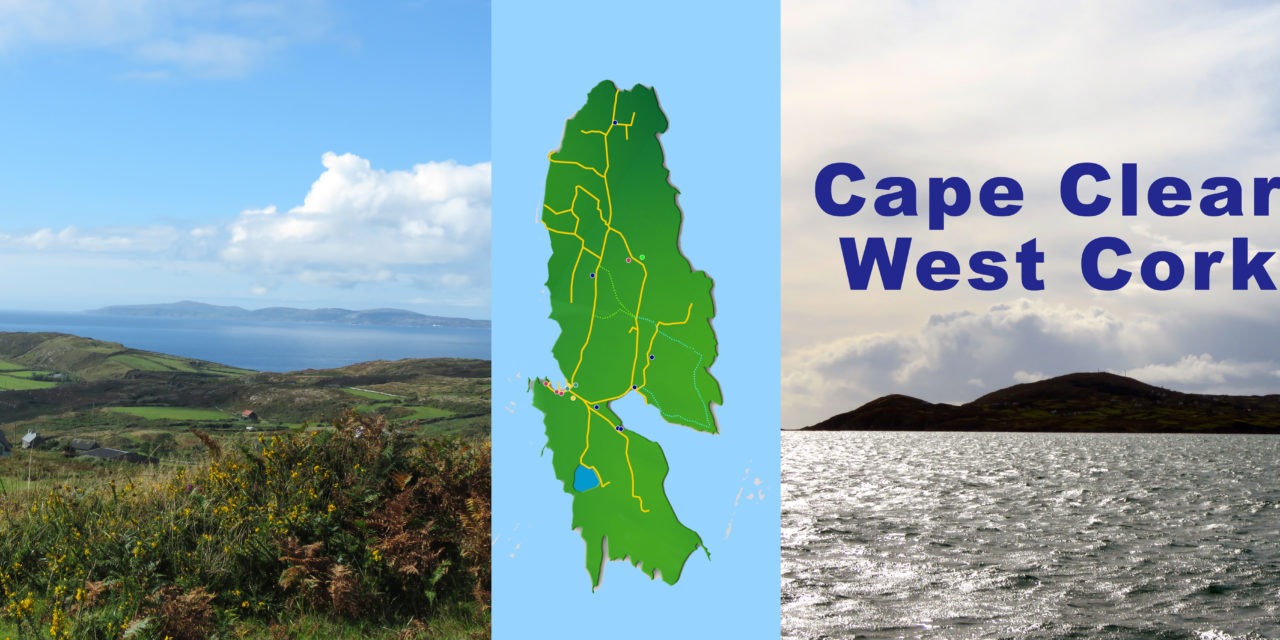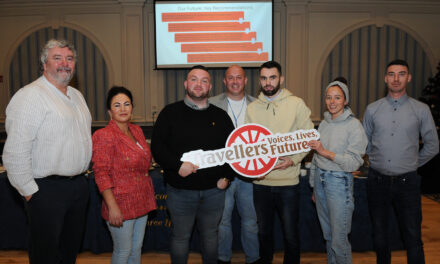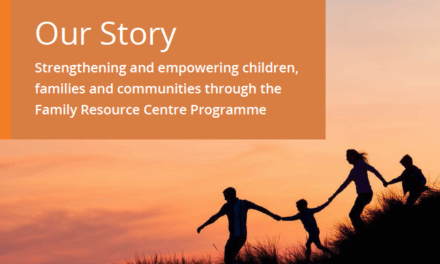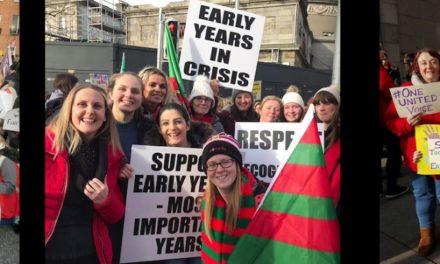Cape Clear Island is ready to host refugees this year. The Gaeltacht community on the southernmost inhabited point of Ireland has raised funds and established language connections in anticipation of welcoming a Syrian refugee family in the near future.
When the feeler was put out on Cape, 18 people immediately replied and Cléire Community Sponsorship Group, or Cuaisín, was formed in November 2020.
“The positive reaction was brilliant. It brought a section of us together to work on it, and it strengthened our little community group,” said Mary O’Driscoll, a founding member of the group.
Exceeding goals
The group’s first attempt at fundraising was hosting a virtual walk, totalling the distances participants walked locally into one trek from Cape to Damascus and back. But the real money-maker was a calendar. The 2022 calendars include island photos and “seanfhocal”, or words of wisdom, from the Cléire Béaloideas collection of 1940. Selling the €10 calendars from a handful of businesses on Cape and stores in Skibbereen, the group has exceeded their expectations.
“Our fund is flying up now,” said O’Driscoll. “It was totally sponsored so it is a total profit. We have enough now for two families.”
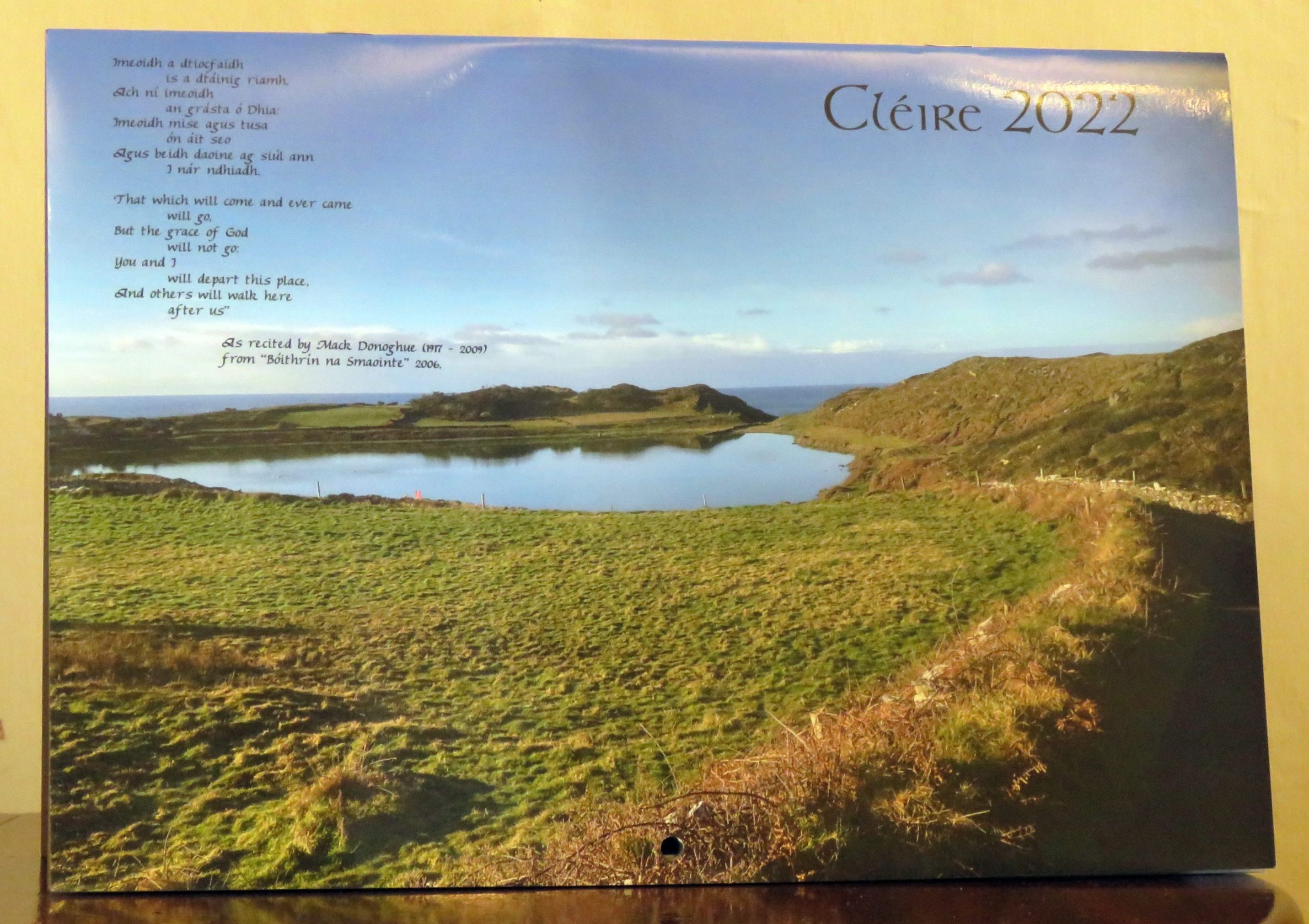
• Cape Clear’s calendar for 2022.
The group needed to raise a minimum of €10,000 to support one sponsored family; By the end of October they had €17,000 and can add on €2,000 in donations-in-kind. “I’m optimistic we’re going to get to €20,000,” said O’Driscoll.
Even though they originally planned for only one family unit, O’Driscoll said once they heard a sister of the parents was also in need, they had no qualms.
“When we put out the call on Whatsapp, ‘Would we agree for two families?’ within an hour they all said, ‘Yes, we’ll work it out, just say yes’.”

• This report was filed by journalist Hannah Ní Shúilleabháin, pictured here on Cape Clear island. Hannah took the photographs accompanying this report.
Giving back what Cape Clear got
“It is nice to think we’re sharing and giving back what was once given to us,” said O’Driscoll, referring to the resettlement program organized by Peter Robinson between 1823 and 1825. The British Government sponsored emigration as a form of relief and pacification for the south of Ireland after a period of civil unrest and a partial famine in 1822. Four Cape Clear families of farmers, recommended by their parish priest and Robinson, emigrated to Canada in 1825.
“It was lovely to think that they had gone in 1825, and we’re just returning the compliment to somebody else.”
For family & community
The Irish Refugee Protection Programme (IRPP) has accepted thousands of refugees since its creation in 2015, a majority of whom go through EU Relocations and UNHCR-led Resettlement. An alternative to these strands, Community Sponsorship Ireland enables local communities to do the groundwork of preparing for and welcoming refugees. A Regional Support Organisation (RSO) provides the training and support in preparation for receiving a family. Nasc, based in Cork, is the RSO for Cléire Community Sponsorship Group.
Cuaisín has been working alongside other community sponsorship groups through their preparation period. They completed online training with Cahersiveen, a community that’s pivoting to sponsorship since asylum-seekers there went on hunger strike, leading to the phased closing of that Direct Provision accommodation.
O’Driscoll believes Community Sponsorship Ireland is a superior alternative to the Direct Provision system for asylum seekers.
“I think it’s good that they come from where they are now directly to here, without going through any provision centre,” said O’Driscoll. “The fact that we have so much preparation to do, it means we know what we’re taking on and we understand the background of it, rather than having them hoist it upon a community without having a group in place to understand where they’re coming from and what to do for them.”
When they arrive
They don’t have a guarantee yet, but O’Driscoll said signs were pointing to an arrival in December or early in the new year. It’s likely IRPP would allocate a family to the island with a similar background: rural and farming.
“We’re an aging population, so we definitely need new blood here,” said Mary O’Driscoll.
A big draw to take in a family is the guarantee of children for the primary school on the island, which currently has 5 students. A 50-minute ferry ride from Baltimore, the island has a year-round population of 110.
By the time training concluded in November, the group had compiled the family’s settlement plan, including contact details for key bodies, a plan of integration, information on State services enrollment, housing, language learning and more.
“I put a little notice on our Skibbereen Notice Board (Facebook group) looking for Arabic speakers, and I got an overwhelming response,” said O’Driscoll. “It’s just brilliant. People want to support us and help us when people get here, and are just dying to get involved.”
To find out more about the IRPP, visit: https://www.justice.ie/en/JELR/Pages/Irish_Refugee_Protection_Programme_(IRPP)

